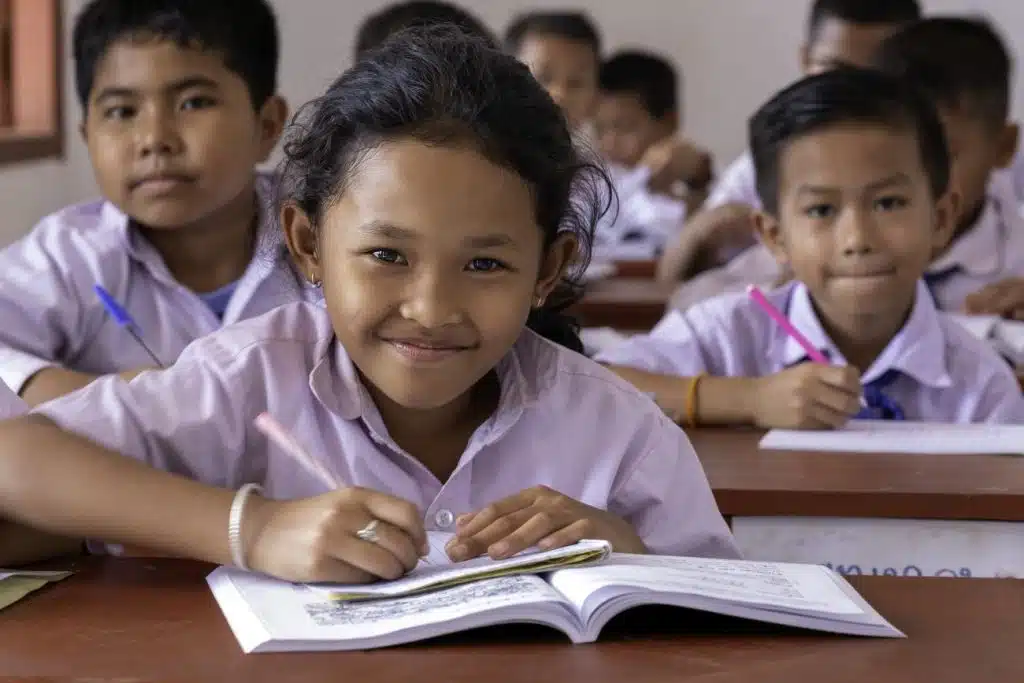Education reforms in bangladesh have aimed to improve access, quality, and relevance in the education system, with measures addressing infrastructure, curriculum, and teacher training. Bangladesh has made significant efforts to reform its education system, focusing on enhancing access to education, improving the quality of education, and ensuring its relevance to the needs of the nation.
These reforms have included initiatives to improve infrastructure, update curriculum, enhance teacher training, and introduce technology in classrooms. The government has prioritized increasing enrollment rates, reducing dropout rates, and ensuring gender equity in education. Additionally, efforts have been made to align the education system with the demands of a rapidly evolving global economy.
Through these reforms, Bangladesh aims to develop a skilled, knowledgeable, and competent workforce to drive socio-economic development in the country.

Credit: international-partnerships.ec.europa.eu
The Current State Of Education In Bangladesh
The education system in bangladesh faces numerous challenges, which necessitate significant reforms. Access to quality education remains a significant issue, particularly in rural areas. Limited infrastructure, lack of qualified teachers, and inadequate resources further hinder the progress of the education sector.
Additionally, socioeconomic factors often restrict educational opportunities for disadvantaged communities. However, the government acknowledges the need for reforms and has implemented various initiatives to address these issues. Efforts are underway to improve infrastructure, train teachers, and provide necessary resources to schools.
The aim is to ensure equitable access to quality education for all, regardless of their background or location. Successful implementation of educational reforms will play a crucial role in shaping the future of bangladesh and empowering its citizens.
The Importance Of Education Reforms In Bangladesh
Education reforms play a crucial role in bangladesh, particularly in enhancing the quality of education. By addressing educational inequality, these reforms aim to create a more equitable system. With a focus on providing equal opportunities to all students, the reforms strive to bridge the gap between urban and rural areas.
Emphasizing the significance of quality education, the reforms integrate modern teaching methods, technology, and updated curriculum to ensure students receive a well-rounded education. By promoting teacher training and professional development, the reforms seek to create a competent and skilled teaching workforce.
Additionally, the implementation of student-centered learning approaches encourages critical thinking, creativity, and problem-solving skills. These educational reforms in Bangladesh are essential for creating a strong foundation for the country’s future, empowering individuals, and fostering social and economic development.
Initiatives Taken For Education Reforms In Bangladesh
Education reforms in bangladesh have witnessed significant initiatives to enhance the quality of education. The introduction of new curriculum and innovative teaching methods has played a crucial role in transforming the education landscape. Alongside this, substantial investment has been made in improving infrastructure and providing necessary resources to schools and colleges.
This infrastructure development includes the construction of new classrooms, libraries, and laboratories, as well as equipping them with modern technology. Moreover, another key aspect of education reforms is the training and development programs for teachers. These initiatives aim to enhance their skills and knowledge, ensuring effective teaching practices.
Teachers are trained in pedagogical techniques, classroom management, and the use of technology in teaching, enabling them to create an engaging and interactive learning environment. As a result of these efforts, the education system in bangladesh is gradually evolving to meet the needs of the 21st century, ensuring students receive a high-quality education.
Impact Of Education Reforms In Bangladesh
Education reforms in bangladesh have had a significant impact on improving student performance. These reforms have successfully narrowed the education gap by providing equal opportunities for all students. The government has introduced various policies and initiatives that focus on enhancing the quality of education and developing students’ skills.
As a result, the overall academic performance of students has improved, with higher pass rates and better grades. Moreover, the reforms have also aimed at increasing the employability of students by providing them with relevant and practical knowledge. This has led to better job prospects and increased opportunities for students in the workforce.
Overall, the education reforms in bangladesh have brought positive changes in student performance, bridging the gap and preparing them for a successful future.
Frequently Asked Questions On Education Reforms In Bangladesh
What Are The Major Education Reforms Implemented In Bangladesh?
The major education reforms implemented in bangladesh include updating curriculum, enhancing teacher training, and introducing new assessment methods.
How Have Education Reforms Improved Learning Outcomes In Bangladesh?
Education reforms in bangladesh have improved learning outcomes by promoting quality education, increasing enrollment rates, and reducing dropout rates.
What Measures Have Been Taken To Ensure Equal Access To Education In Bangladesh?
To ensure equal access to education in bangladesh, measures such as providing free textbooks, stipends for marginalized students, and building schools in remote areas have been implemented.
How Has Technology Been Integrated Into The Education System In Bangladesh?
Technology has been integrated into the education system in Bangladesh through initiatives like e-learning platforms, digital classrooms, and online resources for students and teachers.
What Challenges Are Still Faced In Implementing Education Reforms In Bangladesh?
Challenges in implementing education reforms in Bangladesh include inadequate infrastructure, teacher shortages, financial constraints, and disparities in quality across different regions.
Conclusion
The education reforms implemented in bangladesh have laid a solid foundation for the country’s progress towards a more equitable and inclusive education system. By focusing on improving access to quality education, enhancing teacher training programs, and promoting technological advancements, the government has taken significant steps towards addressing the various challenges faced by the education sector.
These reforms have not only resulted in increased enrollment rates and reduced dropout rates but have also empowered students with the necessary knowledge and skills to thrive in a rapidly changing world. The emphasis on curriculum development and vocational training has helped bridge the gap between education and employment, ensuring that students are well-prepared for the demands of the job market.
It is evident that the education reforms in bangladesh have yielded positive results, paving the way for a brighter future for the younger generation. As the country continues to prioritize education, it is crucial to sustain and build upon these reforms, ensuring that every child has access to quality education and the opportunity to achieve their fullest potential.




